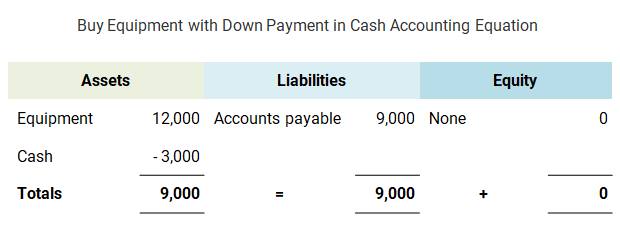
You’ll learn how to turn your business from a “cash-eating monster” into a sustainable, profitable entity with a robust financial health, through practical steps and real-life business examples. This book presents small-business accounting through the lens of running a children’s lemonade stand, under the premise that the two things are more synonymous than one might think. Are you an entrepreneur who’s product knowledgeable but unfamiliar with terms like EBIT or gross profit? If so, you may benefit from Finance for Nonfinancial Managers, which defines these types of key terms. In this book, CPA and certified management consultant Gene Siciliano addresses managers who have to make strategic decisions on behalf of their company but may lack the financial literacy to do so.
If accounting seems like a foreign language to you, this book provides a clear and simple translation. It’s designed for ease of understanding, making it a crucial tool for non-accountants who need to familiarize themselves with financial accounting basics quickly and painlessly. “Profit First” fundamentally shifts your financial management perspective, guiding you to prioritize profits over revenues.
Shihan Sheriff’s guide offers a lifeline to managers restaurant revenue per square foot without a financial background. With a clear and engaging style, Sheriff elucidates accounting concepts, ensuring that non-finance managers can confidently navigate financial landscapes. Kenneth W. Boyd brings a wealth of knowledge in accounting and financial management. An educator at heart, he’s dedicated to breaking down complex financial topics for a wider audience. In this installment of the popular “For Dummies” series, Boyd elucidates the complex world of cost accounting. With practical insights and relatable examples, he aids readers in understanding the intricacies of costing methods, budgeting, and performance evaluation.
What is financial reporting? 8 must-measure metrics for small businesses
This book, or six books in one, offers comprehensive information for both accounting and bookkeeping. The right books offer foundational tools, best practices, and essential financial management knowledge. Financial accounting is not only an essential part of running a small business but also crucial to understanding your financial performance.
- Whether you’re completely new to accounting or just looking to round out your knowledge-base, I have something for you.
- Her passion lies in helping business owners conquer their fear of finances.
- Forbes Advisor has put together this guide to help you understand the basics of small business bookkeeping.
Focusing on your particular experience as a small business owner, this book remains relevant and focused. Try The Accounting Game by Darrell Mullis and Judith Orloff, which explains the concepts in straightforward terms using an interesting story format. If your business needs to charge and collect sales tax for the products you sell, you’ll likely need to make monthly payments to the appropriate state department. You’ll want to do invoicing weekly in most cases, although some businesses may invoice monthly or as they make credit sales. The general ledger is a collection of accounts that display the changes made to each account based rules and recommendations of working with retained ratio on past transactions, along with the current balances in each account.

Assign Transactions to Specific Accounts
Small business owners should look for an accounting book that is written to the level of their knowledge of finance and bookkeeping. Many titles are intended for people with minimal financial literacy, while others assume a baseline knowledge of accounting and bookkeeping. Some accounting books double as business strategy guides, and others tackle only the subject of accounting. Consider which perspective best fits your business needs before picking a title.
Diving into the mindset of the investment maestro, Brodersen and Pysh unravel the accounting methods that guide Warren Buffett’s investment strategies. By simplifying complex concepts, the authors illuminate the path to understanding financial statements from the perspective of value investing. This guide is a vital resource for anyone needing a clear and comprehensible overview of managerial accounting principles. Its straightforward approach makes it an excellent reference for students, small business owners, and professionals aiming to grasp and apply managerial accounting tools effectively.
Review and pay quarterly payroll taxes
Join millions of self-starters in getting business resources, tips, and inspiring stories in your inbox.
With only a single read-through, you’ll understand all accounting concepts and how they help you define, manage, and measure your enterprise. Any business owner closing entries sales sales returns and allowances in accounting who has ever picked up Dawn’s book has quickly grasped the complex accounting topics as she outlines them clearly and concisely. For entrepreneurs and business owners tired of the feast-famine cycle, Michalowicz offers a refreshing approach that guarantees consistent profitability. Whether you’re a small business owner or an individual looking to manage finances better, this guide lays down the groundwork for efficient bookkeeping. Understand the red flags in financial statements, discern potential accounting gimmicks, and develop a skeptical approach to financial report analysis.





